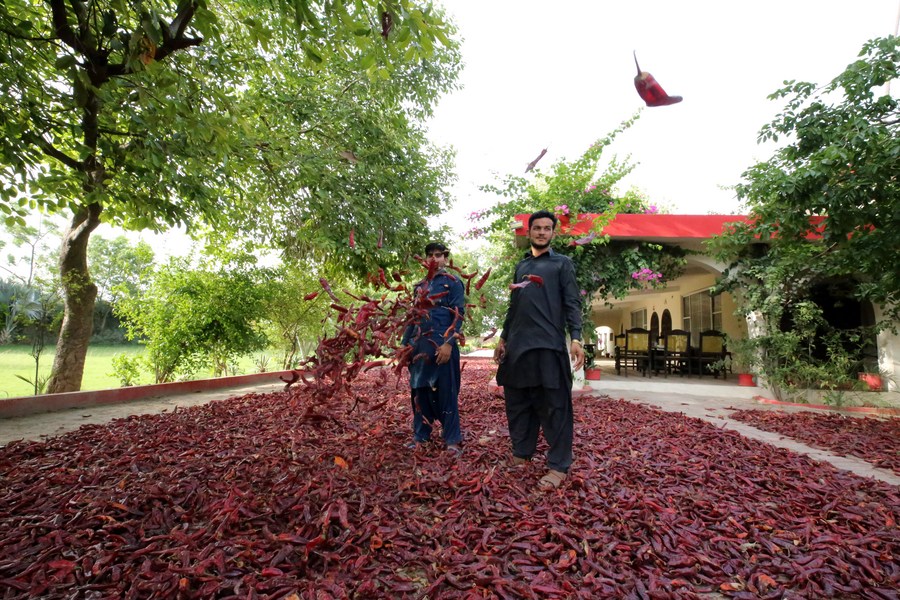KASUR: In a yard brimming with red chilies strewn everywhere on the ground under the blazing summer sun in Kasur district of Pakistan’s east Punjab province, Maryam Bibi and other women laborers were busy making each piece of chili get ample exposure to sunlight and dry up in time.
“We turn them three to four times a day so that they get dry after being soaked in the summer sun, they get fully ripe and dry in five weeks, and when we hear the sound of dried seeds rattling inside the pod, we pack them in bags and put them in storage, Bibi told Xinhua in the remote village of Jamber.
This year, Pakistani farmers and laborers are happy to get a bumper harvest of Chinese red chilies and expect to get good profits as the yield is double that of other varieties of pepper available in Pakistan.
The project is a part of a large-scale agricultural cooperation between Pakistan and China in the second phase of the China-Pakistan Economic Corridor (CPEC), which is currently underway after the success of the first phase focusing on infrastructure and power projects.
Launched in 2013, CPEC is a corridor linking Pakistan’s Gwadar Port with Kashgar in northwest China’s Xinjiang Uygur Autonomous Region and is touted as a game changer for Pakistan by local experts.
Advancing cooperation in the agricultural sector, China Machinery Engineering Corporation (CMEC) and Sichuan Litong Food Group have established a company and carried out a red chili contract farming project in 2021, with model farms across Punjab.
In talks with Xinhua, Xi Jianlong, the Chinese manager from CMEC at Pakistan-China red chili contract farming, said that the Chinese variety is compatible with local soil and the overall hot climate of Punjab province conduces to the growth and nourishing of the Chinese chili variety.
He added that the cooperation benefits numerous individuals, including landowners, farmers, and laborers.
“Last year, we had created more than 2,000 jobs in Pakistan and generated an output value of approximately 770,000 U.S. dollars,” he said, adding that when the crop is harvested and dried, they directly buy it from the farmer, without involving any middlemen.
He further said that this year, they planted chili on about 750 acres of land from where about 1,500 tons of chili were harvested, and during the process of cultivation to harvest, the Chinese company not only transferred knowledge and technology to locals but also utilized the rural labor force. Talking to Xinhua, Muhammad Ammar Asghar, an agronomist working with the CMEC, said that most of the farmers hired by the landowners are uneducated. In order to help the landowner get high yield, the Chinese company provided complete assistance and guidance to the farmers through agronomists and agriculture technicians. –Agencies






